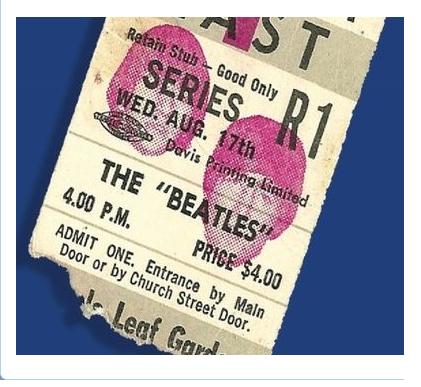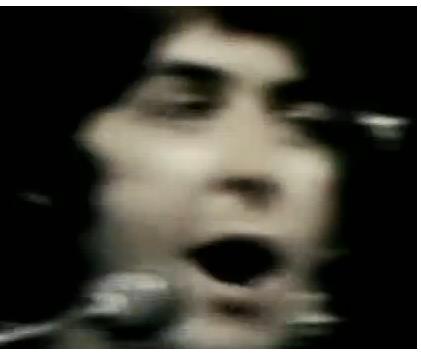A Silo Canuck Book Review
I’ve never particularly been a Beatle’s fan. I like some of their songs. I like a number of them very much, but if I was asked the now proverbial question, “The Beatles or The Rolling Stones?” I would probably say, Oh, I don’t know, maybe The Who? The body of work of Mark Knopfler. Massive Attack were massive for me.
But I was not a child of the sixties, “an age of assassins,” John B. Lee writes in his poignant and powerfully executed preface, when “[o]ur childhood martyred almost all the heroes that we’d had.” John F. Kennedy. Robert F. Kennedy. Martin Luther King (Malcolm X, not mentioned but later, yes). “The list is overlong,” Lee says. “It will not end.” I understand more fully than ever these life-shattering moments, for Americans and Canadians alike; for so many Across the Universe . Into this near death of hope came The Beatles. The Beatles came to America, came on a Sunday night in January 1964 to The Ed Sullivan show and, and as Lee exclaims with no exclamation mark, “sang my life awake.”
It’s not a perfect looking book. Yet as I read, the grainy cover photo (by an unknown photographer) of four dapper mop-tops fishing out the window of their Seattle hotel—they literally weren’t allowed to leave—starts to resonate. It’s imperfection could be viewed as integral, evoking a time in music when moments of “perfect imperfection,” as Michael Shatte calls them in his essay, were more common in pop; “happy accidents” which would not be tolerated in this era of hyper-produced top-forty songs, when singers voices are routinely, digitally “auto-tuned” in the studio, and we get used to being disappointed when we hear them live. Then there’s lip-synching. I don’t need to go on. There is great music being made by great musicians right now. But that’s not what we’re here to talk about. This is about a particular moment in pop-music history, in cultural history, and many of the moments that followed.
The book is selected and edited by John B. Lee, a Canadian poet and writer who has published more than fifty books and received over 70 prestigious awards for his work. If you haven’t heard of him don’t feel too bad. He tells me openly there is little money in poetry, reminding me it’s not about that anyway. If it was it probably wouldn’t be poetry.
If you haven’t read him it might be time to start: his verse and prose catch the beauty of rural life, farm life, family life, hockey, human sexuality—life. Just Google him. He’s from home, you know. Right around here, right around me, the Poet Laureate of Brantford, Ontario and Norfolk County, home as well to Alexander Graham Bell and Wayne Gretzky, a poet of sport. Like McEnroe was one of the poets of my youth, making tennis beautiful, thrilling, creative; revolutionary. How I tried to emulate him…
Window Fishing is about a time of Revolution, evolutions in culture, and about growing up in the thick of it all. I wasn’t here yet, but as I read this book I learn. It is a literary volume. The cover photo and torn ticket stub on the back page are its only images. Or are they? Because black words on white paper are also images. And the book’s words, artistically rendered, conjure images as well as ideas. It is poetry, and prose poetry, and personal essays; fine writing by a collection of fine writers.
I learn that for most of the men, who were boys then, pubescent, the Beatles were all about music: musical discovery, even ecstasy. And style too. There was style.
For the women who write about the phenomenon of Beatlemania, there was music too. Absolutely. But there was something else. Something profound: the awakening of sexuality. Even a kind of love. Suddenly I understand all the screaming and crying, the fainting. For emerging, young (straight) women, the Beatles were more than musical. They were also beautiful. Sexy. As Susan Whelehan puts it in her essay: “John. He was mine and I was his…I was going to be his FOREVER. And I am.”
While many parents of the day may have dismissed The Fab Four at first as a silly “boy-band,” we might say now, shaking their longish (for the time), round hair-cuts—singing “Ooooo!” and “Yeah Yeah Yeah!”—fact is from the beginning The Beatles were always at the very least competent, and obviously compelling, musicians. Writes Honey Novick in her probing, poetic essay: “You could actually dance to their music.” And we know they became more and more sophisticated as they progressed through their careers, eventually making challenging, often satisfying real art-music, the way Radiohead did for me in my 20’s.
All this beautiful literature about The Beatles and the 1960’s has inspired me to listen, finally, seriously, to the music. Even if you thought, at the time, “Yeah Yeah Yeah” was just bubblegum for kids, consider the lyrics. One friend to another: “You think you lost your love/Well I saw her yesterday. She says it’s you she’s thinkin’ of/And she told me what to say: She says she loves you.” She loves you man. Yeah! (Yeah! Yeah!). What more is there to celebrate? Ecstatically.
If you were there, or if you want to learn, or if you care about music or culture or the 1960’s or just literature, embrace the “perfect imperfection” of this unique and potent book. Some of the poems made me close my eyes and shut the pages. To savour, digest. Bruce Meyer made me cry. I was 8 years old when Lennon was shot. Assassinated. It made no impact on me then. I wasn’t really there yet. The book put me there, as close as I can ever come. For the Silo, Alan Gibson.




Leave a Reply
You must be logged in to post a comment.